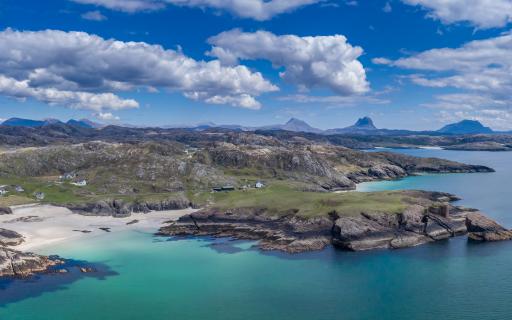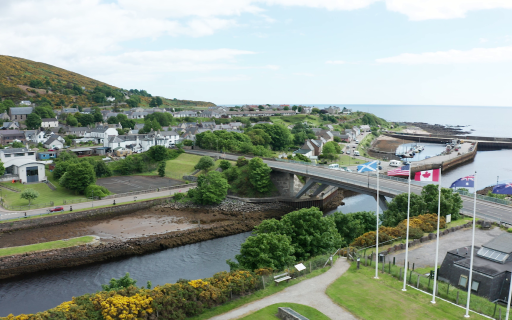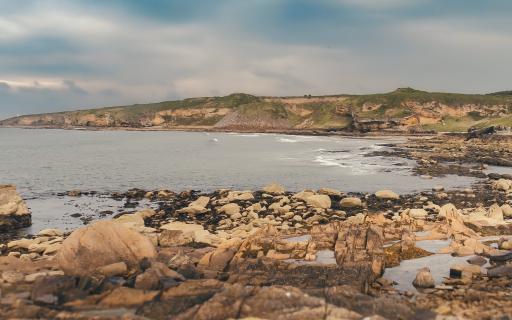
Shinty - Our Community Sport
The Gynack Stitchers came together from across Kingussie to stitch the story of the shinty - Scotland's community sport - and the natural and cultural heritage of the area.
This is their story.
At the beating heart of the ‘spirit’ of the Highlands and Islands is our communities. From the kindness of strangers to the traditions which shape us - the community spirit of the Highlands and Islands is stronger than ever.
There are endless ways to experience this community spirit, wherever you go in the region, but perhaps the best way to appreciate this is on the field watching a game of Scotland’s indigenous and most unique sport - shinty!
As Scotland’s most culturally significant sport, the communities of the Highlands and shinty have an indescribable connection. Generations of families have a strong relationship with the game and, as such, shinty is now a truly indispensable part of Highland culture.
The roots of shinty are equally as fascinating as the game itself and can be traced back to the 6th-8th centuries, where the name ‘camanachd’ emerged. Rooted in the Gaidhealtachd, shinty shares the same historic links as hurling and camogie - two of Ireland’s most iconic Gaelic sports - and bando, of Welsh fame. The origins of the name ‘shinty’ are often contested but regardless, what remains crucial is that since its inception shinty has been a sport entirely for the community.
 Shinty is more than just a sport, it is a community.
Shinty is more than just a sport, it is a community.Image provided by Kirstie Campbell
Our panel includes journey stones depicting the beauty of the surrounding landscape, mountains, rivers and lochs - Creag Dhubh, Sgòr Gaoith, Calder, Spey and Loch Insh. The native flora and fauna: Caledonian Pine, Rowan tree, red squirrels, long tailed tit, sheep and wild flowers.
The historical Celtic crosses, the Saltire, Jacobite Rose and local Wild Cat Trail are also featured. Stitched on the blue journey stone on our panel's lower section is the Gaelic word 'Clach' - which means stone.
Beloved past-times as well as sports and hobbies, such as skiing, skating, canoeing, bothies, sewing, knitting, gardening, spinning, golf and local history, also feature in the journey stones of our panel alongside venues such as the village hall and the wildcat centre.
My stones reflect my history and connection to the area. I found the research and planning of the pieces very relaxing. Being a part of the historical project and seeing all the really beautiful sewing produced by all the stitchers was enlightening and inclusive.
Alexandra Dunn
WITH THANKS TO THE GYNACK STITCHERS
This panel was stitched by Lexy, Kirsty, Alexandra, Anne, Chloe and Bruce, Claire and Rachel who gave their time, skill and energy to completing a fantastic artwork for their area.
If you would like to see the panel up close and admire the detail of their work, you can currently view the panel at the Highland Folk Museum. To find out more about the Inverness Castle Experience click here
EXPLORE MORE STITCHERS STORIES BELOW
Swipe left for more







